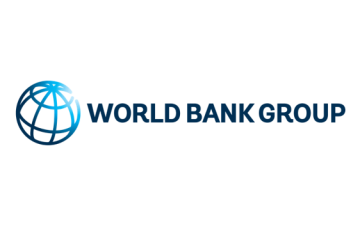Study of the drivers of deforestation and forest degradation in Madagascar Madagascar
![]() AGRICULTURE
AGRICULTURE ![]() ENVIRONMENT
ENVIRONMENT ![]() FORESTRY
FORESTRY ![]() TRANSVERSAL
TRANSVERSAL


Services: Strategic analysis and foresight, Technical and economic advice
Countries: Madagascar
Dates of intervention: 2016/07 - 2017/03
Amount executed: 209 702 €
Total amount of the service: 209 702 €
Main backer: Banque mondiale - Client
Main beneficiary: Bureau national de coordination REDD+ Madagascar
Co-contractors: Université Catholique de Louvain
Support provider: SalvaTerra
Experts: Anis CHAKIB, Olivier BOUYER, Maden LE CROM
Certificate of satisfactory executionAnalyse des moteurs de déforestation et de dégradation dans les écorégions des forêts humides de l'Est et des forêts sèches de l'Ouest de Madagascar - Ebauche méthodologiqueAnalyse des moteurs de déforestation et de dégradation dans les écorégions des forêts humides de l'Est et des forêts sèches de l'Ouest de Madagascar - Rapport de démarrageAnalyse des moteurs de déforestation et de dégradation dans les écorégions des forêts humides de l'Est et des forêts sèches de l'Ouest de Madagascar - Rapport intermédiaire sur la phase de mise en oeuvreAnalyse des moteurs de déforestation et de dégradation dans les écorégions des forêts humides de l'Est et des forêts sèches de l'Ouest de Madagascar - Rapport d'analyseAnalyse des moteurs de déforestation et de dégradation dans les écorégions des forêts humides de l'Est et des forêts sèches de l'Ouest de Madagascar - Rapport de synthèse
Context of the service
In order to qualify and quantify the direct and indirect drivers of deforestation and forest degradation on a very large scale (4 million ha of humid forests in the East and 3 million ha of dry forests in the West), it is necessary to triangulate several sources of information:
- Bibliography (published sources or grey literature) dealing directly or indirectly with these subjects,
- Interviews with key people and households located in deforestation hot spots, in order to be able to invalidate/confirm bibliographic data and pre-identify potential explanatory variables of deforestation drivers,
- Spatialized and disaggregated databases for each of the potential explanatory variables, over the longest and most continuous historical period possible, in order to be able to conduct correlation tests between these variables and past deforestation.
Services provided
SalvaTerra, with the support of the UCL geomatics team, provided the following services to BN REDD+:
- Bibliographic analysis of more than 50 references on deforestation in Madagascar and classification of engines using the ad hoc grid of GEIST and LAMBIN (2001),
- Interview of nearly 200 households and more than 60 resource persons on 10 deforestation hot spots, located in the 7 Regions concerned, then processing of data for pre-identification of potential explanatory variables,
- Univariate and multivariate analyses of 370 variables, in stepwise, forward, backward modes (thanks to IDRISI and R tools) and identification of socio-economic and biophysical explanatory variables with the most reliable and strong correlations,
- Development of deforestation risk maps and future projections using a pixel-by-pixel approach,
- Assessment in terms of relevance, feasibility and effectiveness (costs vs. carbon and non-carbon benefits) of REDD+ policy options.
Summary of the service
Study of the drivers of deforestation and forest degradation in Madagascar (dry forests of the West and humid forests of the East): Exhaustive bibliographic review; In-depth field surveys of 10 deforestation hotspots; Spatial analyses (univariate and multivariate correlation tests) in collaboration with the Catholic University of Louvain; Development of deforestation risk maps; Evaluation of REDD+ policy options (relevance, feasibility and effectiveness)